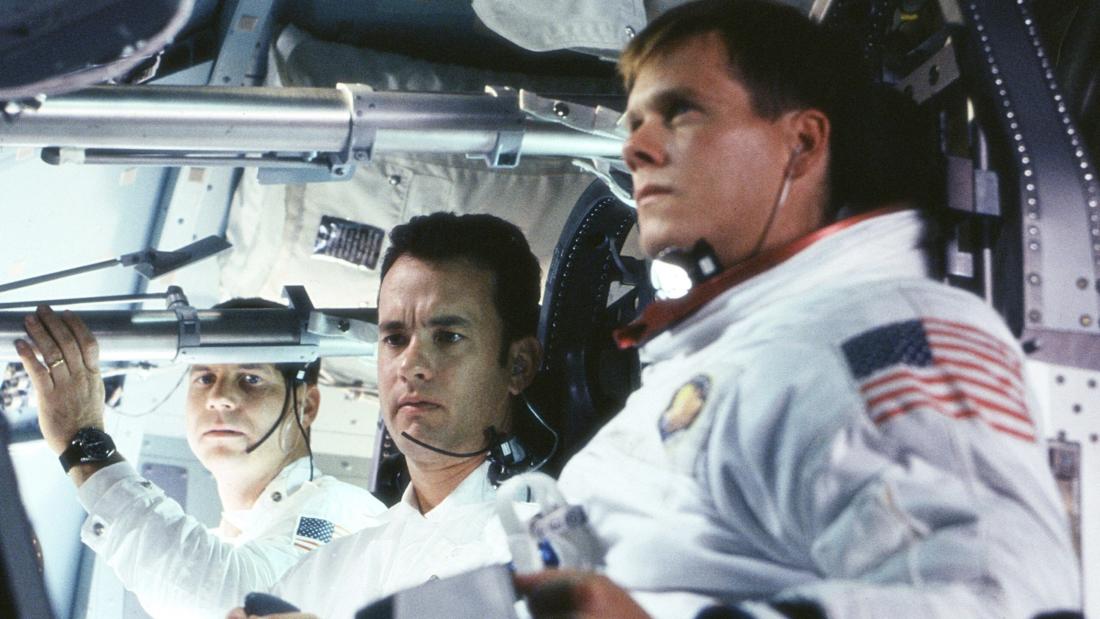
Athena Cinema Athens, OH
Dr. Dennis Irwin
Dean, Russ College of Engineering and Technology, Ohio University
Apollo 13— Houston We Have a Problem: Engineering Solutions in the Face of Disaster
Program Description
A discussion of the technological, political, and societal context at the time of the mission, along with a personal message from one of the Apollo 13 astronauts delivered by Dr. Irwin.
Presented At
Athena Cinema Athens, OH
Film Synopsis
NASA must devise a strategy to return Apollo 13 to Earth safely after the spacecraft undergoes massive internal damage putting the lives of the three astronauts on board in jeopardy.
"Houston, we have a problem."
Astronaut Jim Lovell (Tom Hanks) leads command module pilot Jack Swigert (Kevin Bacon) and lunar module driver Fred Haise (Bill Paxton) on what is slated as NASA's third lunar landing mission. All goes smoothly until the craft is halfway through its mission, when an exploding oxygen tank threatens the crew's oxygen and power supplies. As the courageous astronauts face the dilemma of either suffocating or freezing to death, Mattingly and Mission Control leader Gene Kranz (Ed Harris) struggle to find a way to bring the crew back home, all the while knowing that the spacemen face probable death once the battered ship reenters the Earth's atmosphere. Directed by Ron Howard, Apollo 13 was nominated for nine Academy Awards.
About the Speaker
An Ohio University faculty member since 1987, Dr. Dennis Irwin has been dean of the Russ College of Engineering and Technology since 2002. At that time, he also was named Moss Professor of Engineering Education, which is held by the standing dean of the college during his or her tenure. During his tenure, he facilitated the largest charitable gift ever given to a public engineering college: a $124 million bequest from the estate of Fritz and Dolores Russ. He also developed the initial vision for the Academic & Research Center; and has led the development of a doctoral program in civil engineering, two new master’s degrees, three online master’s degrees in several disciplines, and a unique fundamentals initiative to equip engineers and technologists of the future with tailored foundational instruction. He was also instrumental in bringing the world’s premiere space education program, International Space University, to Ohio University and serving as chief host for its Summer Space Studies Program 2015.
Prior to becoming dean, he chaired the Russ College’s School of Electrical Engineering and Computer Science for five years. He was selected as the school's Outstanding Graduate Instructor and Outstanding Undergraduate Instructor three times each. From 2001 to 2002, he held the Neil D. and Bernice E. Thomas Professorship in Engineering in honor of his outstanding teaching abilities and rapport with students as well as achievements in the electrical engineering profession. Dr. Irwin previously worked for Logicon Control Dynamics Company in Huntsville, Alabama, as a program manager for projects sponsored by NASA, the United States Air Force, and the United States Army.
A registered professional engineer in the state of Ohio, Dr. Irwin is also a faculty member of the International Space University. He has twice chaired the space systems engineering department, and has served as a lecturer or workshop leader since 1998. He is recognized in Who's Who in the World, Who's Who in America, and Who's Who in Science and Engineering. In May 2001, NASA Glenn Research Center awarded him the honor of Excellence in Project Management for his work on the Advanced Communications Technology Satellite. He currently serves on the nomination committee for the National Academy of Engineering’s Russ Prize, the world’s highest honor in bioengineering; as president of the Ohio Society Professional Engineers; and is a fellow of the National Society of Professional Engineers, an associate fellow of AIAA, and senior member of IEEE.
He has received research sponsorship from agencies such as NASA, the U.S. Air Force and the U.S. Department of Education, for which he served as the U.S. principal investigator for a joint grant from the European Union and the United States.
He is the author or co-author of 40 articles and 15 technical reports and has given numerous national and international presentations in the areas of flexible structure control and the use of remotely accessible laboratories for research and educational purposes.